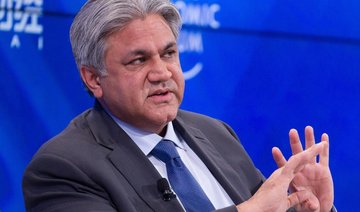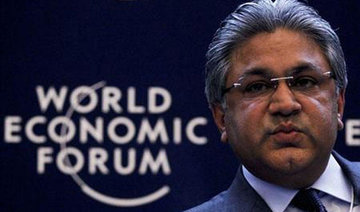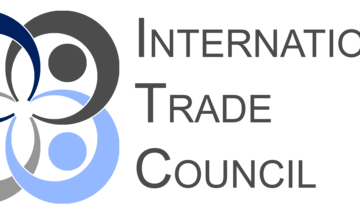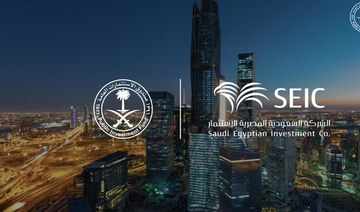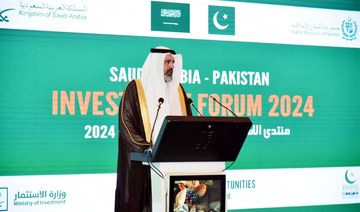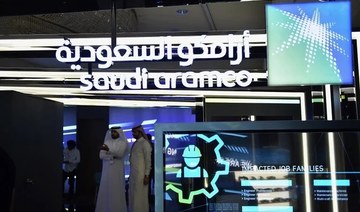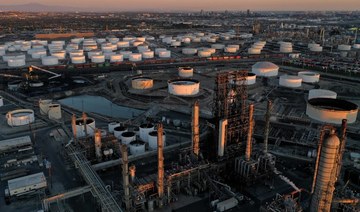DUBAI: The chief financial officer of Dubai-based Abraaj Holdings told Reuters he had left the embattled private equity company.
Two other senior executives are also preparing to leave, three people with direct knowledge of the matter said. The investment firm, which manages $13.6 billion in assets, is also considering a round of job cuts, they said.
Abraaj has shaken up its management, suspended new investments and undertaken a review of its corporate structure following a dispute with four of its investors over the use of their money in a $1 billion health care fund.
Abraaj has always denied reports that it misused the money but the scandal at the Middle East’s largest private equity firm is seen to have taken the shine off a fast-growing sector in the region.
The investors include the Bill & Melinda Gates Foundation and the World Bank’s IFC arm. Officials at the Gates Foundation and IFC have declined to comment on the dispute.
Ashish Dave, Abraaj’s CFO and partner, confirmed that he had left the firm.
“I resigned six months ago to spend time with my family and pursue other opportunities,” he told Reuters on Sunday.
A new chief financial officer, appointed from within the company, would be announced soon, one of the sources said.
CEO Arif Naqvi, who founded the firm in 2002 and turned it into a major emerging market investor, stepped aside from running the fund, Abraaj Investment Management, in February. He will remain chief executive of Abraaj Holdings, which was separated from the fund as part of the changes.
The three sources said that Mustafa Abdel-Wadood, managing partner and global head of private equity, and Ahmed Badreldin, head of MENA private equity, informed Abraaj several months ago that they wanted to leave but were asked to stay on to help support the company during a difficult period.
Badreldin told Reuters by phone that he had not resigned from the company.
An Abraaj spokeswoman said both Badreldin and Abdel-Wadood were still in their positions at the firm.
“Ahmed (Badreldin) remains a partner and head of the MENA region,” she said in a statement.
She also referred Reuters to its statement on Feb. 23 that said Abdel-Wadood continues in his full-time role as a member of the Global Investment Committee and as managing partner of Abraaj Investment Management.
A round of job cuts is also expected at the firm, the sources said, but the newly appointed co-chief executives have yet to make a final decision on the matter.
The spokeswoman did not comment on the job cuts. The statement said that Abraaj had announced a comprehensive re-organization of its business and an independent review of its structure. The review is expected to be completed within a few weeks.
Abraaj said last month it had appointed KPMG in January to look into the finances of the health care fund and within days it said the auditor had completed findings and verified all payments in line with agreed procedures.
The four investors had separately hired forensic accountants Ankura Consulting to investigate how money was used in the Abraaj Healthcare Fund, a source close to one of the firms told Reuters last month. Ankura did not respond to a Reuters request for comment.
Last week, Abraaj told Reuters that the firm had begun freeing large investors from millions of dollars in capital commitments after deciding to suspend its new fund.
In the last year, Abraaj has seen other high-profile departures due to friction over the company’s rapid growth, two of the sources familiar with the matter told Reuters. They said the departures included Tom Speechley, a partner and former head of the firm’s North America business, and Walid Bakr, a managing director who focused on Egypt.
They could not be reached for comment and the Abraaj spokeswoman declined to comment.
CFO says he left Dubai-based private equity firm Abraaj
CFO says he left Dubai-based private equity firm Abraaj

PIF’s Egyptian investment arm set to acquire shares in education-focused Social Impact Capital

RIYADH: Egypt’s Social Impact Capital is set to receive a significant financial boost as it announced a conditional agreement with the Saudi Egyptian Investment Co.
Under the terms of the deal, SEIC will subscribe for new shares in SIC, the principal shareholder of CIRA Education, which is listed on the Egyptian Stock Exchange.
This financial arrangement is designed to facilitate SIC’s acquisition of additional shares in CIRA, potentially increasing SIC’s total shareholding to between 75 percent and 100 percent at a price of 14 Egyptian pounds ($0.29) per share.
This move aims to delist CIRA from the Egyptian exchange and transform it into a major regional player in the education sector.
SEIC, wholly owned by the Saudi Public Investment Fund, will play a crucial role in enhancing CIRA’s market position. As one of the largest fully integrated education service providers in Egypt’s private sector, CIRA stands to benefit significantly from this partnership.
The completion of this conditional agreement is contingent upon successful due diligence, securing applicable regulatory approvals, and the execution of definitive agreements.
Following these steps, the SIC-SEIC consortium plans to extend a mandatory tender offer to CIRA’s other shareholders on the Egyptian stock exchange in line with existing laws and regulations.
CIRA’s initial public offering was in 2018 at a market value of 1.2 billion Egyptian pounds.
According to several reports, the company’s IPO saw selling shareholders SIC alongside other minority reserve holders offer of 207.26 million shares, or 37.8 percent of CIRA, to institutional and retail investors at a price of 6 Egyptian pounds per share.
Moreover, SEIC has been a major investor in Egyptian companies.
In 2023, the investment entity acquired a 25.01 percent stake in state-owned fintech giant e-Finance.
This comes as SEIC acquired an initial 25 percent stake in the fintech company in 2022, making it e-Finance’s largest shareholder.
Also in 2022, SEIC acquired minority stakes in three other Egyptian state-owned companies with a total investment of $1.3 billion.
The three other companies are Abu Qir Fertilisers and Chemical Industries, Misr Fertilisers Production Co., and Alexandria Container and Cargo Handling.
Pakistan ‘high priority’ economic opportunity for us, Saudi top minister says in Islamabad
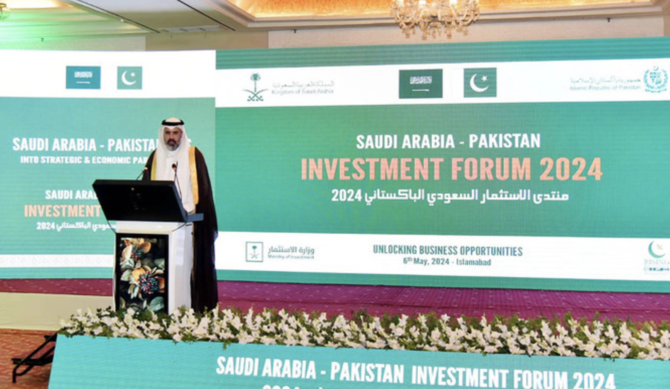
ISLAMABAD: Pakistan is a “high-priority economic investment and business opportunity” for Saudi Arabia, the Kingdom’s Assistant Minister of Investment Ibrahim Al-Mubarak said on Monday, as a two-day Pak-Saudi investment conference kicked off in Islamabad with a focus on business-to-business engagements.
A 50-member delegation led by Al-Mubarak arrived in Pakistan on Sunday, comprising some 30 Saudi companies from the fields of IT, telecoms, energy, aviation, construction, mining exploration, agriculture and human resource development.
“To the Saudi government and Saudi companies, Pakistan is considered a high-priority economic investment and business opportunity,” Al-Mubarak said as he addressed the investment summit.
“We believe in the great potential of Pakistan’s economy, demographics and talent as well as location and natural resources.”
Al-Mubarak said this was his second visit to Pakistan in two weeks and many influential leaders from globally renowned Saudi companies were part of his delegation.
“Today, we want to connect you [Pakistan] all to Saudi companies who desire to continue building their international presence, for Saudi Arabia’s ambitions do not stop at our borders and we would like to see Pakistan as one of our leading international partners,” the Saudi official added.
“So, this gathering provides a wonderful opportunity for them [Saudi companies] to develop a deeper understanding of the great opportunities available for investment in Pakistan and to learn about related regulations, requirements, and incentives.”
Addressing a press conference in Islamabad, Petroleum Minister Dr. Musadik Malik said 125 Pakistani companies were negotiating with the Saudi companies who were visiting the country.
“First, there were government-to-government agreements during the visit of the Saudi foreign minister [last month] and now there will be business-to-business agreements,” he said.
“To facilitate the visiting Saudi companies, the Pakistani commerce ministry has affiliated one focal person with each Saudi company.”
Minister for Commerce Jam Kamal Khan said Pakistani and Saudi companies were discussing joint ventures and collaboration in diverse sectors.
“This delegation includes high officials of more than 32 Saudi companies … Saudi businessmen will invest in Pakistan in different stages,” Khan said at the press conference.
“Pakistani companies are present here, in the energy sector, in the food sector, in the construction sector, in the renewable section, in the ports and shipping section, and the IT services and general services.”
He said the visit by the Saudi delegation was “just the beginning” and now a Pakistani delegation would visit the Kingdom “to move forward toward the implementation phase.”
Investment push
Pakistan and Saudi Arabia have been closely working in recent weeks to increase bilateral trade and investment deals, with Crown Prince Mohammed bin Salman last month reaffirming the Kingdom’s commitment to expedite an investment package of $5 billion.
The Saudi business delegation’s visit comes on the heels of one by Sharif to Riyadh from April 27-30 to attend a special two-day meeting of the World Economic Forum.
On the sidelines of the WEF conference, the Pakistani PM met and discussed bilateral investment and economic partnerships with the crown prince and the Saudi ministers of finance, industries, investment, energy, climate, and economy and planning, the adviser of the Saudi-Pakistan Supreme Coordination Council and the presidents of the Saudi central bank and Islamic Development Bank.
This was Sharif’s second meeting with the crown prince in a month. Before that, he also met him when he traveled to the Kingdom on April 6-8. The Saudi foreign minister was also in Pakistan last month, a trip during which Pakistan pitched projects worth at least $20 billion to Riyadh.
Pakistan and Saudi Arabia enjoy strong trade, defense, and cultural ties. The Kingdom is home to over 2.7 million Pakistani expatriates and serves as a top source of remittances to the cash-strapped South Asian country.
During the first half of the current financial year, bilateral trade between Pakistan and Saudi Arabia was recorded at $2.48 billion, with Pakistan’s exports of $262.58 million and Saudi exports of $2.22 billion.
Saudi Arabia has often come to Pakistan’s aid in the past, regularly providing it oil on deferred payments and offering direct financial support to help stabilize its economy and shore up forex reserves.
As things stand, Pakistan desperately needs to shore up its foreign reserves and is in talks with the International Monetary Fund for a new bailout deal, for which it needs to signal that it can continue to meet requirements for foreign financing which has been a key demand in previous loan packages.
Last year Pakistan set up the Special Investment Facilitation Council, a body consisting of Pakistani civilian and military leaders and specially tasked to promote investment in Pakistan. The council is so far focusing on investments in the energy, agriculture, mining, information technology and aviation sectors and specifically targeting Gulf nations.
Oil Updates – prices climb after Israel strikes Gaza, truce talks continue
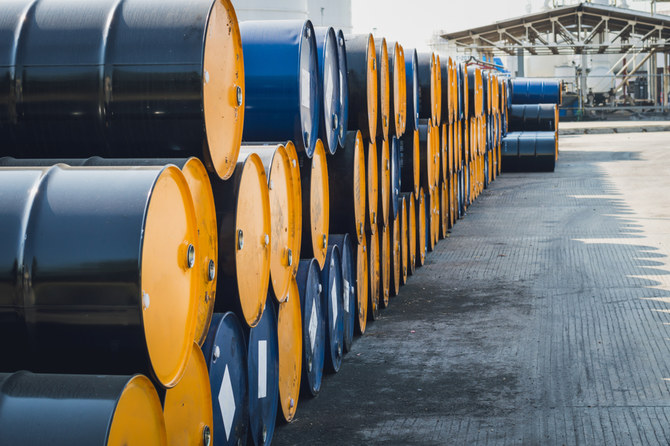
SINGAPORE: Oil prices edged higher on Tuesday after Israel struck Rafah in Gaza, while negotiations for a ceasefire with Hamas continued without resolution, according to Reuters.
Brent crude futures were up 9 cents, or 0.11 percent, at $83.42 per barrel at 9:35 a.m. Saudi time, while US West Texas Intermediate crude futures rose 7 cents, or 0.09 percent, to $78.55 a barrel.
“Oil prices opened up this morning, with some roadblocks in the ceasefire talks between Israel and Hamas leading market participants to price for geopolitical tensions to potentially drag for longer,” said Yeap Jun Rong, market strategist at IG.
Market participants will be looking ahead to upcoming US crude inventories data releases, Yeap added.
US crude oil and product stockpiles were expected to have fallen last week, a preliminary Reuters poll showed on Monday. The crude inventories could have on average fallen by about 1.2 million barrels in the week to May 3, based on analyst forecasts.
During the session, a stronger dollar capped gains in oil futures as it makes crude more expensive for traders holding other currencies. The dollar index, which measures the greenback against six major peers, was last up at 105.25.
Oil prices had settled higher on Monday, partially reversing last week’s declines. Both contracts had posted the steepest weekly losses in three months as the market focused on weak US jobs data and the possible timing of a Federal Reserve interest rate cut.
Palestinian militant group Hamas on Monday agreed to a Gaza ceasefire proposal from mediators, but Israel said the terms did not meet its demands and pressed ahead with strikes in Rafah while planning to continue negotiations on a deal.
Israeli forces struck Rafah on Gaza’s southern edge from the air and ground and ordered residents to leave parts of the city, which has been a refuge for more than 1 million displaced Palestinians.
The absence of a settlement between the parties in the now seven-month long conflict has supported oil prices, as investors worry regional escalation of the war will disrupt Middle Eastern crude supplies.
Saudi Arabia’s move to raise the official selling prices for its crude sold to Asia, Northwest Europe and the Mediterranean in June also supported prices, signalling expectations of strong demand this summer.
The world’s top exporter hiked its flagship Arab Light crude oil price to Asia to $2.90 a barrel above the Oman/Dubai average in June, the highest since January and at the upper end of traders’ expectations in a Reuters survey.
Saudi Aramco’s net profit hits $27.27bn in Q1
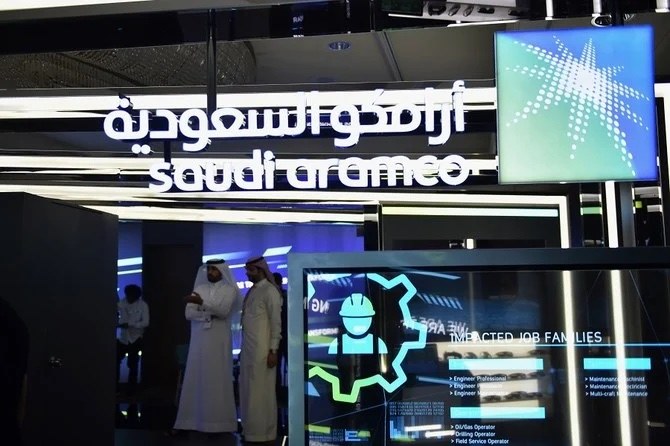
RIYADH: Energy giant Saudi Aramco reported a net profit of $27.27 billion in the first three months of this year, marking a 2.04 percent increase compared to the previous quarter.
According to the company’s statement, the state-owned oil firm’s total revenue for the the three months to the end of March stood at $107.21 billion, with the total operating income for the period reaching $58.88 billion.
Amin Nasser, president and CEO of Saudi Aramco, said: “Our first quarter performance reflects the resilience and strength of Aramco, reinforcing our position as a leading supplier of energy to economies, to industries and to people worldwide.”
However, when compared with the first quarter of the previous year, the net profit of the Tadawul-listed firm declined by 14.44 percent by the end of March 2024.
Despite lower net income, Aramco declared a base dividend of $20.3 billion for the first three months of the year and anticipates distributing its fourth performance-linked dividend of $10.8 billion in the second quarter.
The statement added that the company expects total dividends of $124.3 billion to be declared in 2024, comprising a base dividend of $81.2 billion and a performance-linked dividend of $43.1 billion.
Nasser revealed that Saudi Aramco made significant progress in its gas business during the first quarter.
“We also continue to execute our long-term strategy, and in the first quarter made significant progress on expanding our gas business and growing our globally-integrated downstream value chain, while maintaining our focus on consistently delivering value for our shareholder,” he added.
In February, the energy giant discovered an additional 15 trillion standard cubic feet of gas and 2 billion barrels of condensate in the Kingdom’s Jafurah Field.
Additionally, the statement noted that Saudi Aramco awarded $7.7 billion worth of engineering, procurement, and construction contracts for the expansion of the Fadhili Gas Plant, aiming to increase its processing capacity by 1.5 billion standard cubic feet per day.
Moreover, Aramco completed the acquisition of a 100 percent equity stake in Chilean retailer Esmax in the third quarter of 2023, bolstering the company's downstream expansion efforts.
“Looking ahead, I expect our portfolio to continue to evolve as we aim to contribute to an energy transition that offers solutions to climate challenges, but at the same time recognizes the need for affordable, reliable, and flexible energy supplies,” added Nasser.
The statement further added that Saudi Aramco is well-positioned to help meet the world’s growing need for affordable and reliable energy, emphasizing that oil and gas will continue to play a significant role in the global energy mix.
Additionally, the company noted that it achieved a total hydrocarbon production of 12.4 million barrels of oil equivalent in the first quarter of this year.
Highlighting Aramco’s commitment to sustainability, the energy giant announced its intention to ramp up its utilization of renewable energy sources, aiming to invest in up to 12 gigawatts of solar photovoltaic and wind projects by 2030.
In January, the Sudair Solar PV Plant, one of the largest solar installations in the region boasting a capacity of 1.5 GW, achieved full-capacity operation. This project is a joint venture between Aramco, Saudi Arabia’s sovereign wealth fund, and utility developer ACWA Power.
PIF’s Alat unveils electrification, AI infrastructure business units

RIYADH: Alat, a flagship company of the Public Investment Fund, unveiled two business units in electrification and AI infrastructure, to establish Saudi Arabia as a premier manufacturing hub globally.
The company unveiled its plans during the Milken Institute Conference held in Los Angeles.
According to a press release, the move comes as part of the PIF company’s strategic vision to spearhead a paradigm shift in industry sustainability while propelling Saudi Arabia on the global stage.
Alat Global CEO Amit Midha said: “I am pleased to announce these two exciting new divisions as they will make a significant contribution to Alat’s overall strategic goal of developing an advanced, sustainable future for the industry.”
The electrification arm will fortify grid technology, catering to the burgeoning demand for electricity driven by exponential growth in renewable energy sources like solar, wind, and hydrogen.
By harnessing Saudi Arabia’s solar energy and other clean resources, the firm seeks to manufacture innovative solutions that will catalyze the global energy transition and drive decarbonization in industry.
The electrification unit will specifically focus on enhancing transmission and distribution technologies, facilitating the integration of renewable energy into existing grids, and pioneering advancements in gas and hydrogen generation and compression technologies.
On the other front, the AI Infrastructure business unit will address the escalating global demand for AI capabilities across industries.
This entails the development of cutting-edge technologies encompassing network and communications equipment, servers, data center networking, storage, industrial edge servers, and Industry 4.0 computing.
“The global electrification market size reached $73.64 billion in 2022 and it is expected to hit around $172.9 billion by 2032, growing at a CAGR of 8.91 percent between 2023 and 2032,” the press release added.
The global AI Infrastructure market is set to hit $460.5 billion by 2033, with a robust 28.3 percent compound annual growth rate, driven by widespread adoption across industries for innovation, decision-making enhancement, and task automation.
As a gold sponsor at the Milken Institute Conference, the firm now has nine business units focused on sustainable technology manufacturing.
“Alat will invest $100 billion by 2030 across these business units to develop key partnerships and build advanced manufacturing capabilities in Saudi Arabia to bring jobs and economic diversification to the Kingdom,” the press release said.


